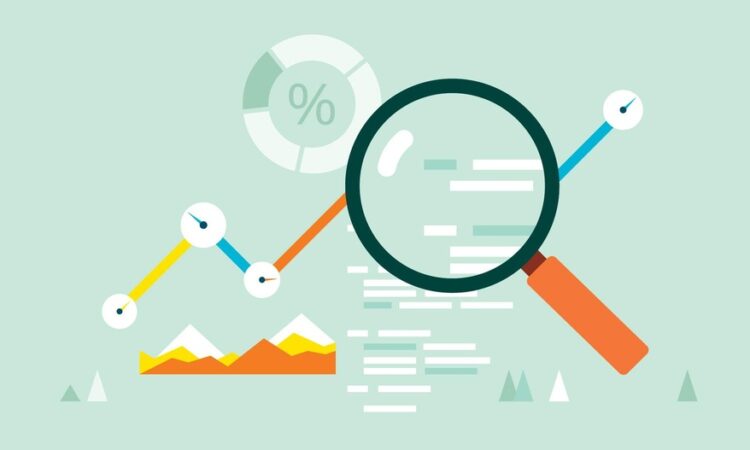We have transitioned into a digital age where technology has created all sorts of job opportunities and new qualifications. Each industry is now being revolutionized by computers and their software, making systems less obtuse and easier to use than ever before. The healthcare service is one example of an industry that has benefited massively by this surge in technology. So, if you’re working in a healthcare-related position and looking to capitalize on this digital movement, we recommend enrolling in a healthcare analytics course. Here are our reasons why you should:
Continuing Education Units

A certificate in healthcare analytics counts as a continuing education unit. A CEU is a qualification you receive for undergoing training and assessment for a certain subject that is related to your working profession. For example, the deputy manager of a company might complete a CEU in business administration. CEUs are essential because they act as proof that someone is competent in their chosen career path. As healthcare workers have incredibly high-stake jobs with protecting their patient’s lives, they must complete CEUs regularly to demonstrate they can do their job properly. A certificate in healthcare analytics is one relatively easy way to do so. Some of these courses are only eight weeks long and are completed entirely online, meaning healthcare workers can participate in them at night while working their job during the day. Therefore, we highly recommend a certificate in healthcare analytics so that key workers can remain qualified.
Employability
As our reliance on technology grows, so does our demand for data analytics. If you’re passionate about healthcare and looking for ways to optimize the system, plus make yourself more employable in the medical industry, then a certificate in healthcare analytics is the way to go. These programs focus on how data can be used in a medical context, so hospitals can improve their treatment of patients by being provided with hard, statistical evidence of what works and what doesn’t. As such, being able to analyze data and advise doctors appropriately saves lives, making statisticians invaluable members of medical teams.
Quick and Easy

What makes a certificate in healthcare analytics even more appealing is the fact it can be attained relatively quickly. For example, DHGE.org offers a program with Pepperdine Graziadio Business School that allows applicants to qualify with a certificate in healthcare analytics in just eight weeks. Better still, this program is done completely online. It’s particularly tailored to healthcare professionals who want to improve their qualifications, but don’t have the time around their hectic work schedules. Moreover, doing these programs from home means you should be able to hit the ground running when implementing these newly acquired skills. The starting dates for the DHGE.org course rotate between January, July, and October, so don’t worry if you initially miss enrollment.
Saving Lives
If you want to do more to improve the healthcare system but are unsure how then a certificate in healthcare analytics could be the solution to your predicament. Data analysis can help the industry in several ways. By studying data, we can identify what variables have affected it, thereby providing the evidence needed to make changes and improve the standard of healthcare. For instance, data can show us what certain medications raise blood pressure when administered, so doctors will know not to prescribe this to patients with heart conditions. Furthermore, data can help us to evaluate the effectiveness of certain practices or prescriptions. Thus, healthcare analytics improve medical departments by providing solid evidence of what is and isn’t working, making them more cost-effective and better at providing care. So, it’s obvious how this qualification can impact lives.
Build Your Knowledge

Broaden your academic horizons with a certificate in healthcare analytics. This qualification is about the application of numeracy to the real world, making it incredibly vocational and interesting. Participants will learn how to interpret data and determine results, finding the meaning behind the maths. Moreover, the certificate gives you a greater insight into medical conditions and what affects them, which could improve your working understanding of the healthcare practice. You’ll also learn how to apply statistical models to and evaluate data collection schemes for the medical industry. The subject of healthcare analytics is rich and benefits the industry in a multitude of ways. You don’t just save individual lives; you could revolutionize patient care on the whole.
Advance with Technology
With the world very much relying on technology and the coronavirus pandemic forcing people to work remotely, you’ll want to adapt your skill set to match the digital age requirements. Therefore, a certificate in healthcare analytics would be the perfect qualification for those in the healthcare sector. Data is the driving force behind everything nowadays. Medical practices can’t be approved until they have definitive evidence to support them – neither can prescriptions or treatments – meaning these statisticians are essential. So, bolster your qualifications and become an invaluable member of the healthcare sector in the digital era.
Forecasting

Data analytics means you can also project what medical treatments a patient with certain conditions might need, what medications are in higher demand because of current circumstances, and what resources will be needed where for each healthcare department. This ability to forecast trends in medical practices has become more important than ever with the rise of coronavirus. It’s paramount to be able to estimate what the impact of a pandemic will have, so our healthcare system can best prepare for it. Furthermore, data is the most accurate method of prediction. It can’t be argued with because the facts are solid. As such, data analytics can massively benefit the healthcare system during this pandemic by directing resources where they need to go far in advance.
And there you have our reasons why you should get a certificate in healthcare analytics. Whether you want to revolutionize the quality of the healthcare system, learn more about the vocations of mathematics, or update your CEU, this qualification is the best way to go. Make a difference with data.
 Hi Boox Popular Magazine 2024
Hi Boox Popular Magazine 2024



